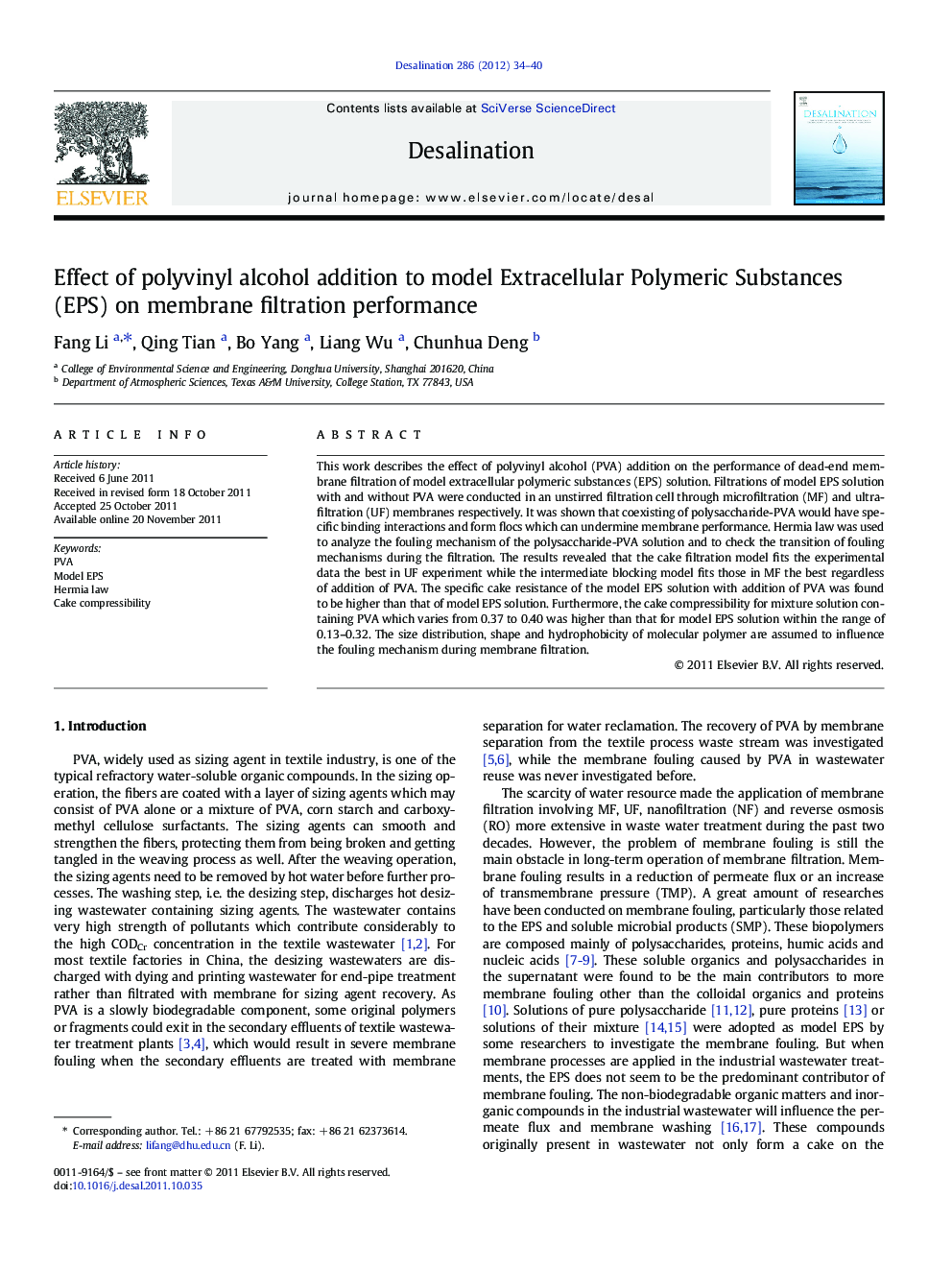| Article ID | Journal | Published Year | Pages | File Type |
|---|---|---|---|---|
| 624487 | Desalination | 2012 | 7 Pages |
This work describes the effect of polyvinyl alcohol (PVA) addition on the performance of dead-end membrane filtration of model extracellular polymeric substances (EPS) solution. Filtrations of model EPS solution with and without PVA were conducted in an unstirred filtration cell through microfiltration (MF) and ultrafiltration (UF) membranes respectively. It was shown that coexisting of polysaccharide-PVA would have specific binding interactions and form flocs which can undermine membrane performance. Hermia law was used to analyze the fouling mechanism of the polysaccharide-PVA solution and to check the transition of fouling mechanisms during the filtration. The results revealed that the cake filtration model fits the experimental data the best in UF experiment while the intermediate blocking model fits those in MF the best regardless of addition of PVA. The specific cake resistance of the model EPS solution with addition of PVA was found to be higher than that of model EPS solution. Furthermore, the cake compressibility for mixture solution containing PVA which varies from 0.37 to 0.40 was higher than that for model EPS solution within the range of 0.13–0.32. The size distribution, shape and hydrophobicity of molecular polymer are assumed to influence the fouling mechanism during membrane filtration.
►We investigated the effect of PVA addition to model EPS on membrane filtration performance. ►PVA addition will increase the particles size of model EPS for the interaction between molecules. ►The best fitting for cake filtration during UF and intermediate blocking during MF. ►Specific cake resistance and cake compressibility are increasing after PVA addition.
